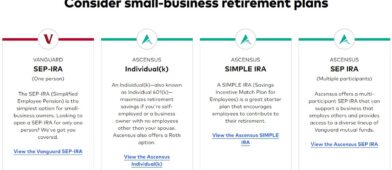On October 30th, 2015, the Securities and Exchange Committee voted in favor of Title III of the JOBS Act (Jumpstart Our Business Startups). Title III would let non-accredited investors invest in startups.
An accredited investor is someone who has a net worth of at least a million dollars, excluding their primary residence, or income of at least $200,000 each of the last two years ($300k if you’re married). It’s a high bar.
In the last three years, I’ve invested in the six figures in various “angel” investments (for equity, convertible debt, hybrids of those) across around 10 companies. All in search of that sweet sweet passive income.
The number of straight equity deals (I give money, I get equity) is small (2).
One company returned the capital, with a small loss (10%), and one company is likely to be a complete loss. The rest are in good shape, making regular distributions or timely interest payments on the debt.
All in all, I’ve avoided tragedy. I’ve also lagged the S&P500 by a wide margin (not an accurate benchmark for this class of investments but that’s where the money would’ve been).
If I could, I’d avoid it completely. Here’s why.
Table of Contents
You’re just gambling
My first ever investment was in a small biotechnology company in the midwest for a few thousand dollars.
My friend (let’s call him Frank) who introduced me to the idea, told me that it was gambling. Frank was betting on his friend (let’s call him Ernie), who was a very smart guy and academically qualified. Frank was investing in creating a personal hedge against Ernie’s success. If Ernie made millions off this company, Frank stood to earn tens of thousands. It was, in a way, built to celebrate losses and ensure Frank wouldn’t be jealous of his friend Ernie. Made sense.
Frank makes it very very clear this is gambling. What I would say later on is that it’s all gambling.
As an angel investor, you control nothing. Any semblance of influence you think you have is imaginary. Even if you have skills that can materially impact the success of the company, you’re not there every day. Execution trumps ideas every single time and while you can pour gasoline on a fire, you can’t start it. Or restart it if it goes out.
So you’re basically giving money, hoping for a payout, and you won’t even be able to reliably know how valuable your investment is.
So it’s like gambling. In the dark. Without the free drinks.
I can’t evaluate opportunities
I knew I was gambling when I went into the opportunities.
What I didn’t know was that I’m bad at evaluating them — I think I can understand the company, I think I can understand the market, but I don’t. You can’t understand it by reading a few papers, you have to be in the market. Or know people who are in the business who can look at it on your behalf.
The pros aim to get 1 unicorn, 3 that tread water, and 6 that crash to zero. And the pros have access I don’t. They have experts, deal flow, and other people’s money. In fact, it’s not far fetched to say that I only see the deals they pass on. Or, more likely, are too small for them.
So I’m gambling in a game I’m bad at! So far so good!
It’s illiquid… which sucks.
Tim Ferriss has mentioned, on numerous occasions, that he likes angel investing because it is illiquid. He knows his own emotions and knows that the temptation to sell a company when it’s down is too great, so he likes investing in companies where there’s no mark to market and he can’t sell easily. The investment manages his emotions.
I have no problem watching the stock market go down. In fact, I see it as a buying opportunity because I plan to hold for many years.
I bought a lot of dividend stocks that got beat up in the latest major downturn in late-2009 and 2010. They’re now up significantly, so even when there are big moves (like in early 2016 and previously during the Greek debt crisis), they’re still in the green and that mitigates the sense of panic somewhat.
It’s not fun
I don’t know why I got it into my head it’d be fun to angel invest. In reality, it’s no different than, say, crowdfunding real estate investing.
By definition, you give money and are quiet. It’s fun to see your investments in the wild, doing their thing, but you’re overpaying for that feeling of fun. 🙂
To be perfectly honest, I like that I can invest in the stock market, make money, and have no headaches. If a stock goes down, I have no one to be upset with. If a stock goes up, I still have people I can celebrate with. It’s nice and mechanical and I think that’s how I like it.
And if I really want to gamble, I can fly to Las Vegas and do it for far less than what would go into an angel investment.
If I want cashflow, and even if I’m just getting started, then I can drip in some real estate investing for under $1,000.
You still want to do it?
If I haven’t convinced you of the follies of angel investing, I can share a few ideas that might mitigate some of these factors. The best way is by drafting off the pros either in a fund or through a syndicate.
Buy into a fund or syndicate that does angel investing and live vicariously — check out AngelList and MicroVentures. Remember that you need to be an accredited investor (net worth $1mm+ or $200k annual income) and those funds will attempt to confirm this, usually by having you attest to being one under penalty of perjury.
A syndicate is where you invest with a lead investor (syndicate lead) and pay them a deal carry, or percentage of profits (15-25%). When you join a syndicate, you can choose whether or not to participate in a particular investment along with the lead. With a fund, you put in your cash and just watch passively.
In both cases, you are still gambling and you are still a poor evaluator of opportunities.
There are investment groups, which are essentially social groups with an investment component. They’re often good for networking purposes and getting better at evaluations. I’ve never joined one before, I’ve gone to a few meetings, and I can see how being involved with one would be a lot of fun.
Alternatively, if you want to angel invest to help a friend out, that’s fantastic. It’s like loaning money to family or friends, don’t expect to see it ever again. Don’t be upset if things don’t work out, mixing money and friendships is very difficult.
Have you angel invested? What are your thoughts on it?




I can’t say that I have. I also don’t think I will be doing it anytime in the future for several of the reasons you listed above. I do enjoy hearing about people ideas for businesses. I image angel investing like “Shark Tank” only less hostile.
It’s less hostile only because it’s not on TV, TV needs that conflict to be entertaining. 🙂
I would never do it unless I had a $10 million net worth, minimum. There’s just too high a chance that you’ll lose out. I think the only reasonable way to think about angel investing is that you enjoy the thrill of a 1 in 1,000,000 chance of partnering with the next Facebook. Financially, if you’re not doing it professionally I’m sure it’s a big money loser
The funny part is that you won’t ever partner with the next Facebook because those deals are gobbled up way earlier by bigger firms. You might get in on a friends and family round… maybe, but the likelihood of that is probably less than 1 in a million. 🙂
I think it would be fun if I had boatloads of disposable income, but yeah, I don’t anticipate that.
You can bad angel investments with just tugboats of disposable income… that doesn’t mean it’s a good idea. 🙂
I’ve done it a couple times now, Jim. The first defied nearly all your negatives. It does come with free drinks. It has been fun. I’ve had an opportunity to sell my shares at cost, but I held on. It’s a small craft brewery that opened its doors about 5 years ago. I get a couple free drafts anytime I stop by the taproom. I get to walk about the brewery and back and talk hops and malts with the brewmaster. I even got to help brew a 465-gallon batch of amber ale once. It was a gamble, but came… Read more »
I sense a theme… invest in fringe benefits. 🙂
Make sure your investments are liquid 🙂
We are very boring investors, so I don’t think I would like angel investing at all. It does sound like a huge gamble, and one where a total loss is actually rather possible. I agree with you – there are cheaper ways to gamble and have some fun! =)
Jim, I’ve been with Hawaii Angels since 2008 and Blue Startups since 2014. I agree that angel investing is hard– especially doing it on your own. Working with a group helps tap into great resources for due diligence. I’ve also invested in the typical 10 startups. I have yet to see an exit but I’ve reduced the losses via tax credits and by financing a lawsuit. I’m having the typical results: three are promising (all med tech), three are too close to call either way, and four have gone down in flames. It’s possible that I’ll beat the S&P500 over… Read more »
There’s also the social aspect of doing it in a group, it’s fun to see the same people and chat about opportunities. Solo is very… well, solitary. 🙂
“Reduced losses” via “financing a lawsuit.” Sounds fun Doug! 🙂
There are advantages as long as you know what you’re getting into, for me and where I’m at financially and in life right now, those aren’t priorities. Maybe when I’ve reached my cognitive peak… 🙂
Jim, I totally hear yah! It’s straight up gambling w/ asymmetric info. Funny line about having no drinks while gambling. I invested about $75,000 in Bulldog Gin almost 10 years ago. No return at all. I’ve written it down to zero, and am just happy it’s alive and in many of the bars in NYC, Spain, and a few other regions. It tied up with Campari to be a distributor in the world. The idea was to make Gin cool like Skyy and Grey Goose did to vodka in the 1990s. Jury is out! Buy a Bulldog and tonic or… Read more »
I can’t even imagine getting into an investment like gin, so many moving parts and so many unfair practices and backroom dealings I’m SURE happened along the way! I’ll look to see if I can find a Bulldog locally and help you out. 🙂
I heard of Bento! They were on the Startup Podcast I think?
That access is crucial. Would I have invested in Uber and Pinterest and Airbnb when it first started? Who knows. 🙂
I do not invest in start-ups. I would imagine that the unleveraged returns of venture capital firms would be similar to that of the stock market. I would imagine there would be wide dispersion of returns, as some of the more established firms will get the FB’s, GOOG’s, Ubers etc, while others will not have access to the most scalable companies. It is a game of chance, where out of 100 investments, 80 could go to zero or lose money, 10 – 15 may do ok, and 5 – 10 may become 10 – 20 baggers. Since I doubt that… Read more »
Angel investing is best done by joining an investment group. Wolves hunt in packs for good reason. The advantages of joining an Angel Capital Association chapter are many. These include better deal flow of good opportunities, shared due diligence review of prospective investments, opportunity to interact with experienced angel investors, etc.
Total agree with Jim. I have invested on angel.co and other crowd funding projects. The return is miserable negative. My return from stock during the same period is unbelievable. Be careful about microventures and other investment websites. I made very little money from those websites. The private company valuations are too high. When they go IPO, they go down for the first couple of years. You can get much better return if you invest in the same stocks after IPO (like Pinterest, Tesla). I am also very suspicious about the fees and distribution calculation on these websites. It is unclear… Read more »
I am thinking about investing with Microventures for the secondary offering of SpaceX shares in January 2021. Are you saying that the entire SpaceX fund at Microventures exited recently? Does that mean you will get a distribution of cash rather than being able to hold on to SpaceX shares?